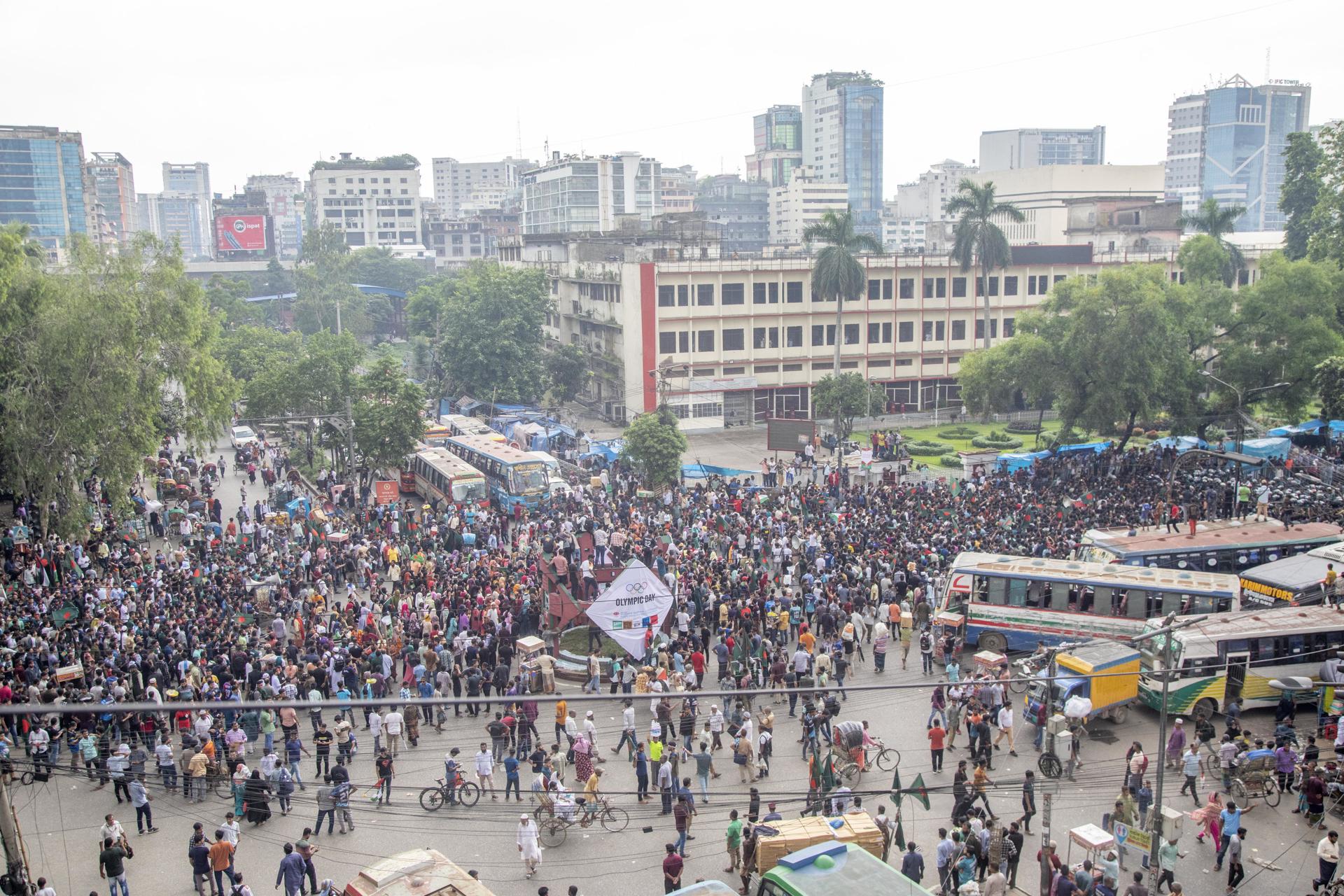Dhaka, July 15 (EFE).- Thousands of students continued their protests for the second consecutive week at different public universities and colleges across Bangladesh on Monday, demanding an end to quotas in government jobs.
Protests flared up on Sunday night after hours after Bangladesh Prime Minister Sheikh Hasina refused to fulfill the students’ demand saying that the matter was now in the hands of the court.
Speaking at a press conference at her residence, Hasina likened the protesters, who opposed the job quota for relatives of freedom fighters, to the Razakar Force, which collaborated with the Pakistani army during the 1971 War of Independence.
Her remarks prompted thousands of students, including girls, to come out of their dormitories on the Dhaka University campus at midnight to protest.
Students turned on their cell phone flashlights and banged utensils, creating a unique scene rarely seen in Bangladesh, where mass protests are common.
Similar protests at midnight were also reported at other major public universities in the cities of Chittagong, Rajshahi, Barishal, Cumilla, and Sylhet.
“Her remarks were very insulting to us. We want her to withdraw her comment and fulfill our demand,” Muntasir Ahmed, a master’s student in the Arabic department at Dhaka University, told EFE.

Local media reported sporadic incidents of clashes between protesting students and members of the Bangladesh Chhatra League, the student wing of Hasina’s ruling Awami League, though no one was seriously hurt.
Students returned to their respective university campuses on Monday to continue their protests, demanding that the government enact a law in parliament reforming the quota system.
“Except for a few quotas for disabled people and marginalized people, we want all quotas to go. But instead of listening to our demand, the government started insulting us,” said Aronno Shahriar, an organizer of a protest at Rabindra University in the northern district of Sirajganj.
Protests began in early July after the High Court asked the government in an order on June 5 to restore 30 job quotas for the descendants of freedom fighters.
The Appellate Division initially refused to stay the order before putting a status quo on the matter for four weeks when two students submitted a separate petition to the court.
Protesting students said that the petitioners were not part of their movement.

On Sunday, students, under the banner of the Students Movement Against Discrimination, submitted a memorandum to the country’s president, Mohammed Shahabuddin, requesting that he call an emergency parliament session to enact the necessary law to reform the job quota.
Hasina said that the government would not interfere in the protests as long as they remained peaceful but warned students of action if they attacked anyone.
These are the first major demonstrations that Prime Minister Sheikh Hasina has faced since taking office for the fourth consecutive time in January, in elections boycotted by the opposition. EFE
am/pd

